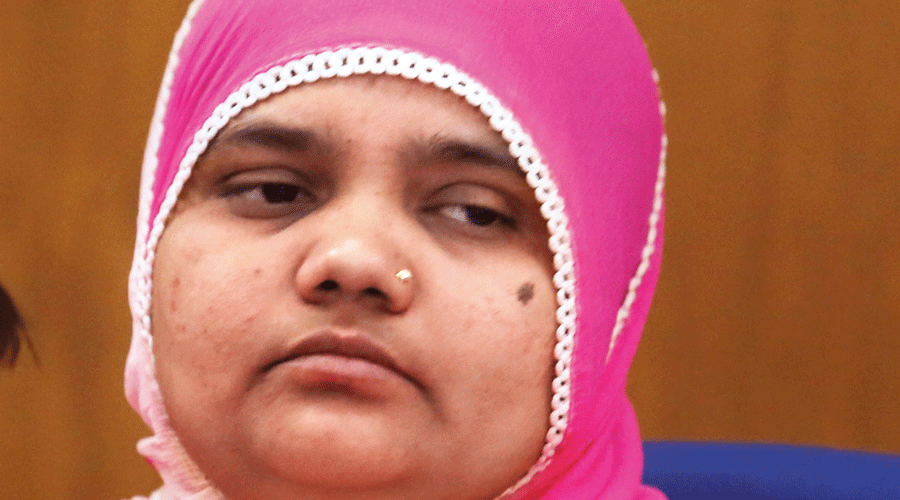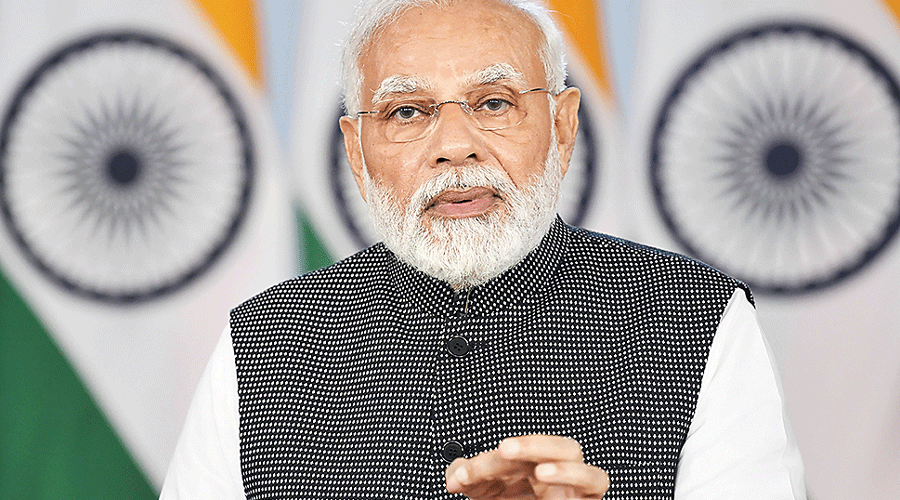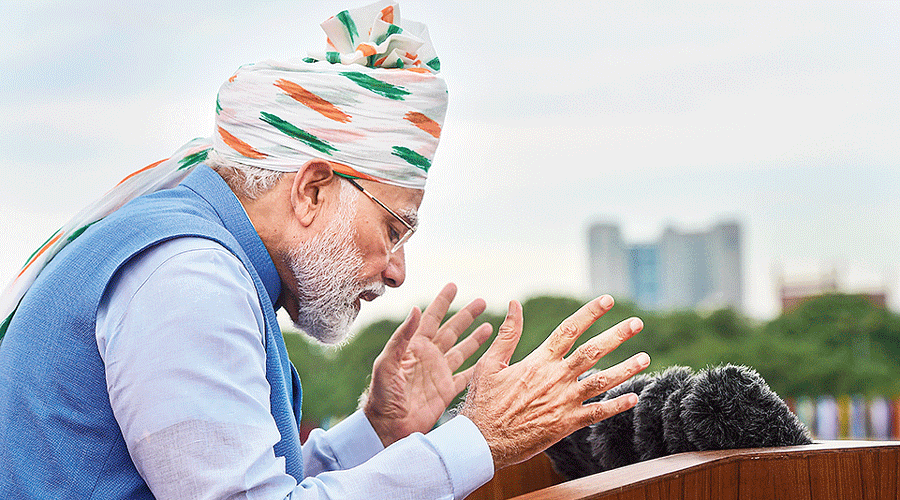A former CBI director on Monday said the Centre should petition the Supreme Court against the Gujarat government’s release of 11 convicts in the Bilkis Bano gang rape and murder case, and alleged that the Union government’s continuing silence smacked of a “double standard”.
He cited how the Narendra Modi government had in 2015 successfully opposed in the Supreme Court a Tamil Nadu decision to release one of the Rajiv Gandhi assassination convicts. The Centre had claimed sole right of remission in cases investigated by federal agencies, and the apex court had upheld the argument.
“Why this double standard in the Bilkis Bano case? The Modi government had in 2015 vehemently opposed the Tamil Nadu decision to release the Rajiv assassination convict. Why is a different yardstick being applied to the Bilkis case?” the retired director of the CBI told The Telegraph.

Bilkis Bano. File picture
The Centre has so far stonewalled the question whether the Gujarat government had taken its permission to release the 11 lifers in the Bilkis Bano case, investigated by the CBI.
“The agency must clear its stand: if it was consulted, it should make this official.
If not, what is preventing it from petitioning the apex court?” the former CBI director said.
Senior officers of the CBI, which reports to the Prime Minister’s Office, declined comment when asked whether the Gujarat government had consulted the agency before remitting the sentences.
Asked whether the CBI planned to challenge the release of the convicts in the Supreme Court, in case it was not consulted by the state authorities, the agency spokesperson said: “I have no knowledge about the issue.”
The former CBI director said the Union government’s continuing silence on whether the Gujarat authorities had consulted it raised questions.
“If the Centre was not consulted and the Gujarat government acted surreptitiously, it (the Centre) should start an inquiry,” he said.
The subject has been partly complicated by a judgment delivered last May by a two-judge apex court bench that said the power of remission in the Bilkis Bano case was vested with the Gujarat government as the crime had been committed in that state.
This judgment did not refer to the 2015 verdict, passed by a five-judge constitution bench, which said the Centre’s permission was mandatory to remit sentences in cases investigated by central agencies.
Bilkis Bano is herself free to challenge the remissions citing the Supreme Court’s 2015 judgment, legal experts have said.
A pregnant Bilkis was gang-raped and seven of her family members, including her three-year-old child, were murdered during the 2002 riots.
In 2004, the apex court transferred the case to the CBI following allegations of bias on the part of Gujarat police, and the trial was shifted to Maharashtra.












